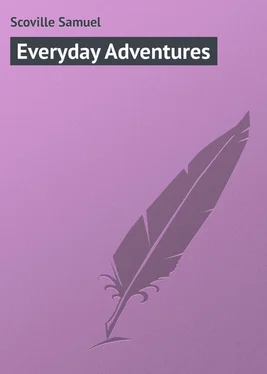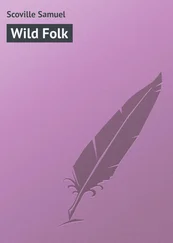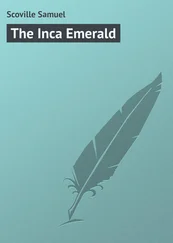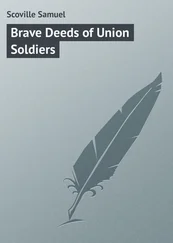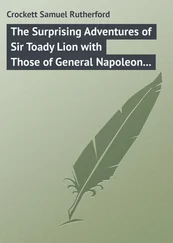Samuel Scoville - Everyday Adventures
Здесь есть возможность читать онлайн «Samuel Scoville - Everyday Adventures» — ознакомительный отрывок электронной книги совершенно бесплатно, а после прочтения отрывка купить полную версию. В некоторых случаях можно слушать аудио, скачать через торрент в формате fb2 и присутствует краткое содержание. Жанр: foreign_prose, foreign_language, на английском языке. Описание произведения, (предисловие) а так же отзывы посетителей доступны на портале библиотеки ЛибКат.
- Название:Everyday Adventures
- Автор:
- Жанр:
- Год:неизвестен
- ISBN:нет данных
- Рейтинг книги:3 / 5. Голосов: 1
-
Избранное:Добавить в избранное
- Отзывы:
-
Ваша оценка:
- 60
- 1
- 2
- 3
- 4
- 5
Everyday Adventures: краткое содержание, описание и аннотация
Предлагаем к чтению аннотацию, описание, краткое содержание или предисловие (зависит от того, что написал сам автор книги «Everyday Adventures»). Если вы не нашли необходимую информацию о книге — напишите в комментариях, мы постараемся отыскать её.
Everyday Adventures — читать онлайн ознакомительный отрывок
Ниже представлен текст книги, разбитый по страницам. Система сохранения места последней прочитанной страницы, позволяет с удобством читать онлайн бесплатно книгу «Everyday Adventures», без необходимости каждый раз заново искать на чём Вы остановились. Поставьте закладку, и сможете в любой момент перейти на страницу, на которой закончили чтение.
Интервал:
Закладка:
A red streak flashed down the limb on which the nuthatch was working. That was the squirrel. A fraction of a second ahead of the squirrel there was a wink of gray and white. That was the nuthatch. Before the squirrel could even recover his balance, there was a cheerful rat-tat-tat just behind him on the other side of the limb. As the squirrel turned, the rapping sounded on the other side of the branch. His bushy tail quivered, and using some strong squirrel-language, he dived back into his hole. He was hardly out of sight when the nuthatch was tapping again at his door. Once more the squirrel rushed out chattering and sputtering. Once more the nuthatch was not there. Then he tried chasing the bird around the limb, but there was nothing in that. The nuthatch could turn in half the time and space, and moreover did not have to be afraid of falling, for a drop of fifty feet to frozen ground is no joke even for a red squirrel. The aggravating thing about the nuthatch was that, no matter how hard the squirrel chased him, he never stopped for a second, tapping away at the branch, feeding even as he ran. Finally Mr. Squirrel went back to his house and stayed there, while the nuthatch tapped in triumph all around his hole, although muffled chatterings from within expressed the squirrel’s unvarnished opinion of that nuthatch.
When the nuthatch finally flew to another tree, we got up and followed a path that twisted through a barren field full of grassy tussocks and clumps of mockernut hickories and black-walnut trees, until it at last lost itself in the depths of Blacksnake Swamp. This swamp had taken its name from the day that we caught a black snake skimming along over the tops of the bushes like a bird. In summer it is full of impassable quagmires, and to-day we hoped to explore the hidden places which we had never yet seen. We had scarcely passed through the outer fringe of tall grasses and cat-tails, when we heard everywhere through the cold air little tinkling notes, and caught glimpses of dark sparrow-like birds with forked tails, striped breasts, and streaked rich brown backs, each one showing a fine zigzag whitish line at the bend of the wing. Another field-mark was a light patch over each eye, and we identified the first and largest flock of pine siskin of the year. These siskin are strange birds. One never knows when and where they will appear. The last flock that I had seen was in my back-yard in May. Usually too they are in trees, and this was the first time that I had ever met with them on the ground. The birds gave little canary-like notes, like goldfinches, which are often found with them, but can always be recognized by their unstreaked breasts and double wing-bars.
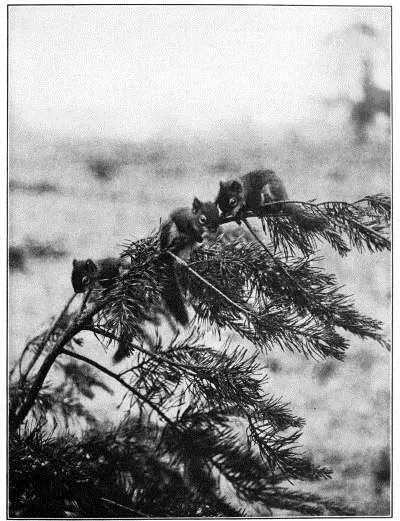
JUST OUT OF THE NEST – YOUNG RED SQUIRRELS
For a long time we studied the flock through our field-glasses, until every last one of the Band had learned this new bird. As we watched them, a white-throated sparrow lisped from a nearby bush, and a little later we met a flock of tree sparrows, a bird which is never by any chance found in a tree. In the distance a woodpecker flew through the air in a labored up-and-down flight, and, as he disappeared, he gave the wild cry of the hairy woodpecker, a bird nearly twice the size of his smaller brother, the downy. Close by the side of the creek, we heard a tiny note like “pheep, pheep, pheep,” and, even as we looked for the bird, it flew past and lit on a tree on the other side of the path, not two feet away. We all stood stony still, and in a minute a brown creeper circled the tree, climbing it in tiny hops in a wide spiral. He was so close that we could see his stiff, spiny tail with a little row of spots at its base, and the brown and gray speckles on his back, and his long curiously curved bill.
We pressed on into the very heart of the great, treacherous marsh, to-day frozen hard and safe, and explored all of its secret places. In a tangle of wild-grape vine, we found the round nest, rimmed with grape-vine bark, of the cardinal grosbeak; while over in a thicket of elderberry bushes, all rusty-gold with the clinging stems of that parasite, the dodder, showed the close sheath of the fine branches of a swamp maple. In a fork at the end of one of the branches, all silver-gray, was the empty nest of a goldfinch, the last of all the birds to nest. It was made of twisted strands of the silk of the milkweed pods hackled by the bird’s beak. In the snow, we came across a strange track almost like the trail of a snake. It was a wide trough, with little close-set, zigzag paw-marks running all through it. The Captain told the Band that this was the trail of the fierce blarina shrew, one of the killers. Without eyes or ears, this strange little blind death eats its weight in flesh every twenty-four hours, and slays under ground, above ground, and even under the water. The Band regarded the strange tracks with enormous interest.
“How big do they grow?” anxiously inquired Henny-Penny, the littlest but one of the Band.
“Just a little longer than my middle finger,” the Captain reassured him.
Suddenly, in the very midst of this zoölogical bric-a-brac, a great thought came to each and every of the Band simultaneously.
“Lunch-time!” they shouted with one accord.
Then occurred the tragedy of the trip. In a pocket of his shooting-jacket the Captain had a package of sandwiches containing just one apiece, no more, no less. The rest of the lunch, thick scones, raisins, chocolate, saveloy sausage, bacon, and other necessaries and luxuries, had been wrapped up in another package and intrusted to Honey as head of the commissary department for the day – and Honey had left the package on the hall table! It was a grief almost too great to be borne. The Band regarded their guilty comrade reproachfully. Two large tears ran down Honey’s cheeks. Alice-Palace, the littlest of them all, gave way to unrestrained emotions which bade fair to frighten away the most blood-thirsty of blarinas within the radius of a mile.
Then it was that the Captain rose to the emergency. “Comrades,” said he, placing one hand over Alice-Palace’s widely-opened mouth, “all is not lost. Old woodsmen like ourselves can find food anywhere. Follow me. Hist!”
Like Hawk-Eye and Chingachgook and other well-known scouts, the Captain was apt to employ that mysterious word when beginning a desperate adventure. The Band followed him with entire confidence, albeit with certain snifflings on the part of Corporal Alice-Palace. They crossed a tiny brook, and found themselves in a little grove of swamp maples which had grown up around the fallen trunk of the parent tree. The Captain scanned the trees carefully. Everywhere were trails in the snow which he told them were the tracks of gray squirrels. Suddenly he reached up and picked out from between a little twig and the smooth trunk of a swamp-maple sapling, a big, dry, beautifully-seasoned black walnut. That started the Band to looking, and they found that the little trees were filled with walnuts, each one wedged in between twigs or branches so that it would not blow down. Up and down and about the low trees climbed and scrambled the Band. Some of the nuts were hidden and some were in plain sight, but altogether there was nearly half a peck of them, each one containing a dry, crisp, golden kernel which tasted as rich and delicious as it looked. They had come upon the winter storehouse of a gray-squirrel family.
Piling the nuts in the lee of a big oak tree where the camp-fire was to be made, they followed the Captain to a broken-down rail fence, where grew a thicket of tiny trees with smooth trunks, whose gray twigs were laden down with bunches of what looked like tiny purple plums. Each one had a layer of pulp over a flat stone, and this pulp, what there was of it, had a curious attractive spicy sugary taste. The Captain told the Band that these were nanny-plums, sometimes known as sweet viburnum. Further on, they found clusters of little purple fox-grapes, fiercely sour in the fall, but now sweetened enough, under the bite of the frost, to be swallowed.
Читать дальшеИнтервал:
Закладка:
Похожие книги на «Everyday Adventures»
Представляем Вашему вниманию похожие книги на «Everyday Adventures» списком для выбора. Мы отобрали схожую по названию и смыслу литературу в надежде предоставить читателям больше вариантов отыскать новые, интересные, ещё непрочитанные произведения.
Обсуждение, отзывы о книге «Everyday Adventures» и просто собственные мнения читателей. Оставьте ваши комментарии, напишите, что Вы думаете о произведении, его смысле или главных героях. Укажите что конкретно понравилось, а что нет, и почему Вы так считаете.
